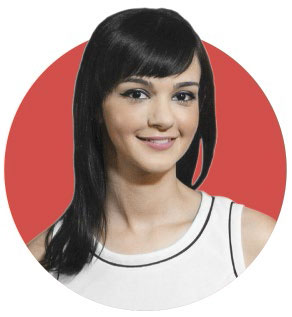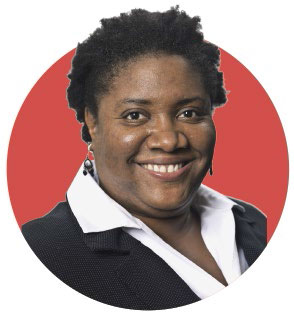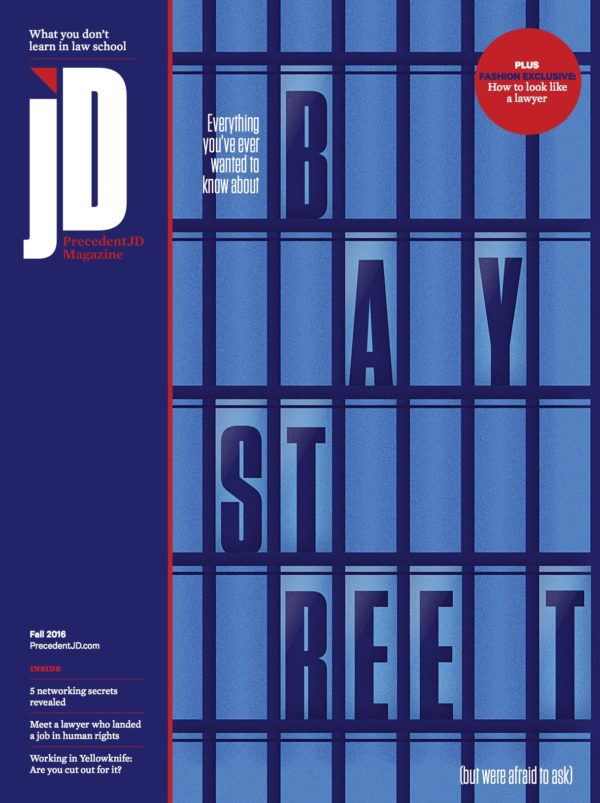
Doomsday may not be upon us, but the arid economy of the past decade has made it harder than ever for law students to do a pretty important thing: land an articling gig. Which is why, two years ago, the Law Society of Upper Canada launched the Law Practice Program (LPP). Any Canadian law-school grad can take the eight-month program — in English at Ryerson University or in French at the University of Ottawa — and get called to the bar. No articling required. But is the program up to snuff? To find out, we asked two lawyers who completed the LPP at Ryerson to grade the program. They happily uncapped their red markers, and we’ve tallied the results.

Rachel Braatz
Job status: First-year associate at Warren Camacho LLP in Ottawa

Nandi Deterville
Job status: Looking for work in Toronto
Online coursework
For the first four months, students work through mock files in virtual four-person law firms, under two lawyer-mentors.
Rachel: B+
As students work though files, they video-conference with clients, played by actors. “The acting was phenomenal,” says Braatz. In fact, the emotional performance of the actor in her family-law file — a divorce involving infidelity and a sick child — is what convinced her to go into family law. Her sole complaint: one of her mentors gave sporadic feedback on assignments.
Nandi: B+
“This was a fantastic crash course in Canadian law,” says Deterville, a U.K.-trained law student from St. Lucia. The program squeezed in primers on seven practice areas — from family to criminal to corporate — into four months. One of her mentors returned assignments regularly and on time, but, like Braatz, the other gave feedback less frequently.
On-campus training
During the first four months, students spend three weeks on campus. They run through simulated trials and attend seminars.
Rachel: A
“When I heard we’d be going into a courtroom to simulate cross-examinations, I was skeptical,” she admits. “I thought, Oh, it’s just fake. But it didn’t feel fake.” Why? Again, the actors, who improvised effortlessly. Some would burst out in anger when asked personal questions. “It felt totally real, so we took it seriously.”
Nandi: A
The on-campus days, full of seminars and court appearances, were exhausting – in a good way. “We’d start at 7 in the morning and work until about 7 at night,” she says. “But that’s real life.” Deterville especially loved the seminar on trial advocacy, put on by Torys LLP all-star Sheila Block. “She was just brilliant.”
Work-placement team
A team at Ryerson helps each student (about 220 each year) find a four-month placement that takes place in the second half of the program.
Rachel: A
Braatz found her own placement by contacting Warren Camacho, a family-law firm in Ottawa. But she still lauds the work-placement team for tirelessly helping students craft cover letters and resumés. Better still, all 221 students got placements. Braatz’s placement was paid, but her pie-in-the-sky request is that all of them are in the future. (This past year, 27 percent were unpaid.)
Nandi: B+
Deterville found the work-placement team terrific. But she does have one quibble: it’s unfair that when students apply for a placement through the Ryerson job portal, and are offered the gig, they must accept it. “Here’s my compromise,” she says. “Give students 48 hours to see if they get another offer. If they don’t, then fine, make them take it.”
We also put the criticisms in this report card to Chris Bentley, the executive director of the LPP.

This story is from the 2016 edition of PrecedentJD Magazine
